The No Makeup Fix for Puffy Eyes
We ask the experts for some DIY ways to deflate (plus, one last-resort procedure).
By Corrie Pikul
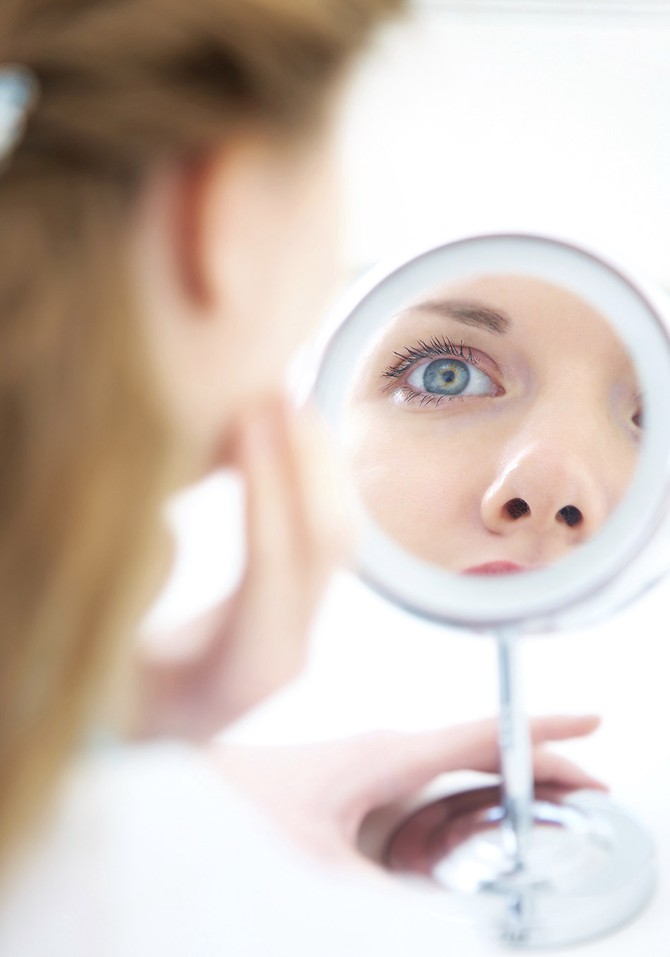
Photo: YanLev/iStock/Getty Images
The De-Puffing Diet
What's happening: Eating sugar causes inflammation all over the body; you're noticing it under the eyes because the skin is especially thin and prone to swelling.
What to try: "Whenever we ask patients to give up sugar for any health issue, the first thing they notice is that under-eye swelling immediately improves," says Patricia K. Farris, MD, a clinical associate professor of dermatology at Tulane University.
What not to try: Maybe you've heard the beauty pageant trick of dabbing Preparation H under the eyes. Although it might decrease swelling slightly, Farris cautions that it's not worth risking irritation or even an allergic reaction that could occur in delicate under eye skin. Also avoid witch hazel and other astringents—they won't eliminate the puffiness, Farris says, but they will probably cause dryness and irritation.
What to try: "Whenever we ask patients to give up sugar for any health issue, the first thing they notice is that under-eye swelling immediately improves," says Patricia K. Farris, MD, a clinical associate professor of dermatology at Tulane University.
What not to try: Maybe you've heard the beauty pageant trick of dabbing Preparation H under the eyes. Although it might decrease swelling slightly, Farris cautions that it's not worth risking irritation or even an allergic reaction that could occur in delicate under eye skin. Also avoid witch hazel and other astringents—they won't eliminate the puffiness, Farris says, but they will probably cause dryness and irritation.
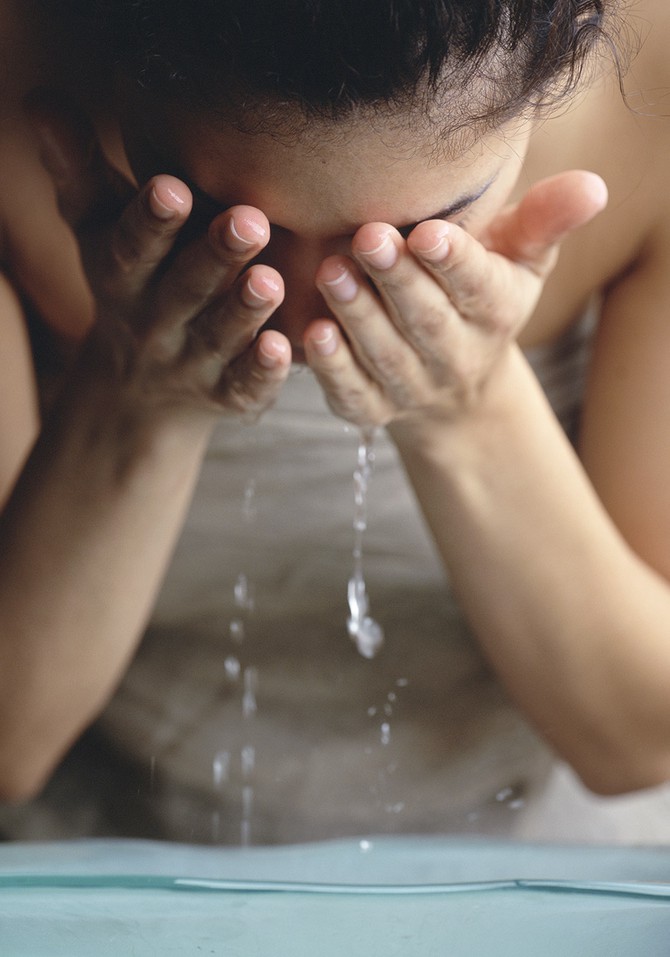
The New Beauty Habit That Could Save Your Eyes
What's happening: Tiny aerosol particles are notorious for landing on eyelids and irritating the skin in the area, says Brooke Jackson, MD, an associate professor of dermatology at UNC at Chapel Hill. Hairspray tends to be the worst offender.
What to try: If you can't give up your hairspray, Jackson says that washing your face after you spritz your hair will rinse away most of the potentially irritating particles.
What not to try: Don't underestimate the other sprays in your bathroom: Body mist, deodorant spray and room fresheners can also be irritants, especially for those who are sensitive to allergy triggers like dust, pollen and pets.
Photo: Lisa Spindler Photography Inc./The Image Bank/Getty Images
What to try: If you can't give up your hairspray, Jackson says that washing your face after you spritz your hair will rinse away most of the potentially irritating particles.
What not to try: Don't underestimate the other sprays in your bathroom: Body mist, deodorant spray and room fresheners can also be irritants, especially for those who are sensitive to allergy triggers like dust, pollen and pets.
Photo: Lisa Spindler Photography Inc./The Image Bank/Getty Images
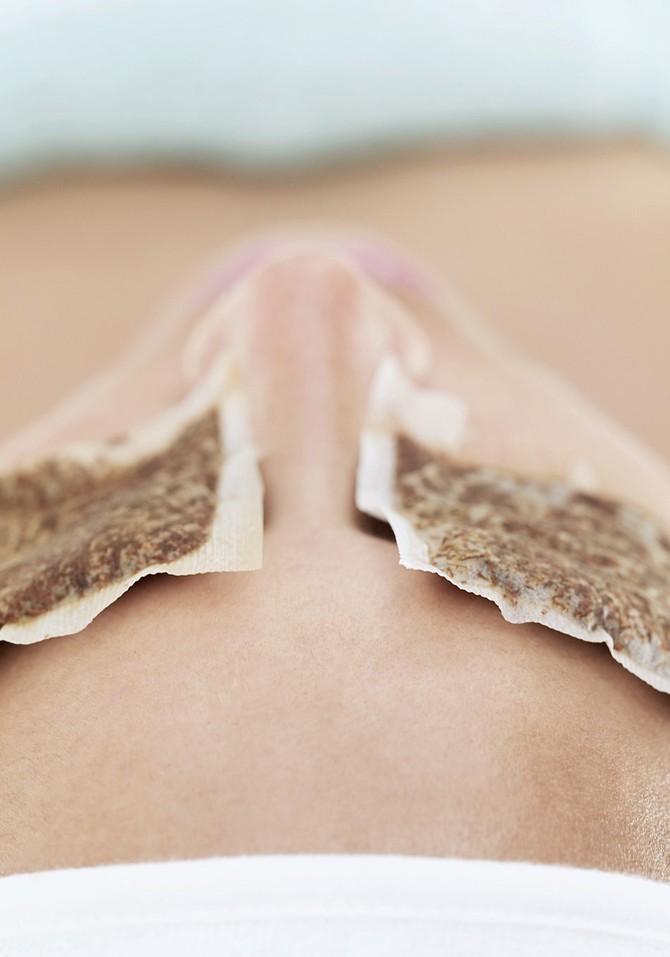
Photo: Stockbyte/Thinkstock
The Spot Fixes in Your Kitchen
What's happening: Drinking alcohol causes blood vessels to dilate, and the extra blood under the eyes is contributing to puffiness as well as dark circles.
What to try: Farris suggests a cool compress with green-tea bags, which have antioxidants that also act as anti-inflammatories. As a bonus, the caffeine constricts blood vessels, counteracting the effect of alcohol. Other good options: Bags of frozen peas (they're better than cucumbers at conforming to the area, says Farris); cotton balls soaked in cool water or skim milk.
What not to try: Farris has heard of patients putting warm tea bags on their eyes, which may feel comforting but actually makes puffiness worse.
What to try: Farris suggests a cool compress with green-tea bags, which have antioxidants that also act as anti-inflammatories. As a bonus, the caffeine constricts blood vessels, counteracting the effect of alcohol. Other good options: Bags of frozen peas (they're better than cucumbers at conforming to the area, says Farris); cotton balls soaked in cool water or skim milk.
What not to try: Farris has heard of patients putting warm tea bags on their eyes, which may feel comforting but actually makes puffiness worse.
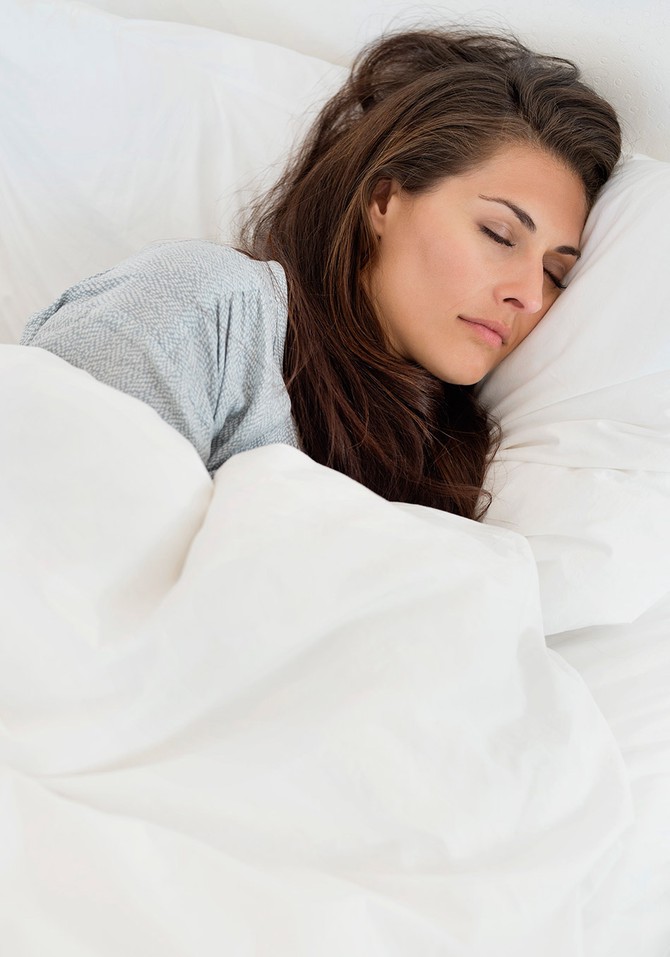
Photo: Eric Audras/ONOKY/Getty Images
The Best Sleep Position for Your Face
What's happening: It's true what you've heard about salt: It makes you retain fluid, and that causes bloating everywhere but especially under the eyes, where there isn't much room for the fluid to be dispersed.
What to try: Sleeping with your head elevated—it must be above your heart, says Farris—increases circulation, preventing the fluid from pooling in your head and face.
What not to try: Sleeping while sitting up (don't laugh—Farris says some patients have done this) isn't comfortable, and few people can stay in that position for long. If you're restless or not sleeping well, that can contribute to dark circles, which make puffy eyes more noticeable. (Exercising after you wake up also boosts circulation, but Farris says it may still take about an hour for your eyes to look normal.)
What to try: Sleeping with your head elevated—it must be above your heart, says Farris—increases circulation, preventing the fluid from pooling in your head and face.
What not to try: Sleeping while sitting up (don't laugh—Farris says some patients have done this) isn't comfortable, and few people can stay in that position for long. If you're restless or not sleeping well, that can contribute to dark circles, which make puffy eyes more noticeable. (Exercising after you wake up also boosts circulation, but Farris says it may still take about an hour for your eyes to look normal.)

Photo: STOCK4B-RF/Thinkstock
The Pills That Can Treat Under-Eye Bags
What's happening: Your allergies and sinus issues are affecting your face.
What to try: Take your 24-hour antihistamine pills before bed. This medication blocks the actions of symptom-triggering histamines throughout the body but can often take a few hours to kick in. If you take them at night, they'll start fighting puffiness even before you wake up.
What not to try: Patients often wait to address allergies until they're sniffling and sneezing, says Jackson, but that's when swollen eyes are hardest to treat.
What to try: Take your 24-hour antihistamine pills before bed. This medication blocks the actions of symptom-triggering histamines throughout the body but can often take a few hours to kick in. If you take them at night, they'll start fighting puffiness even before you wake up.
What not to try: Patients often wait to address allergies until they're sniffling and sneezing, says Jackson, but that's when swollen eyes are hardest to treat.
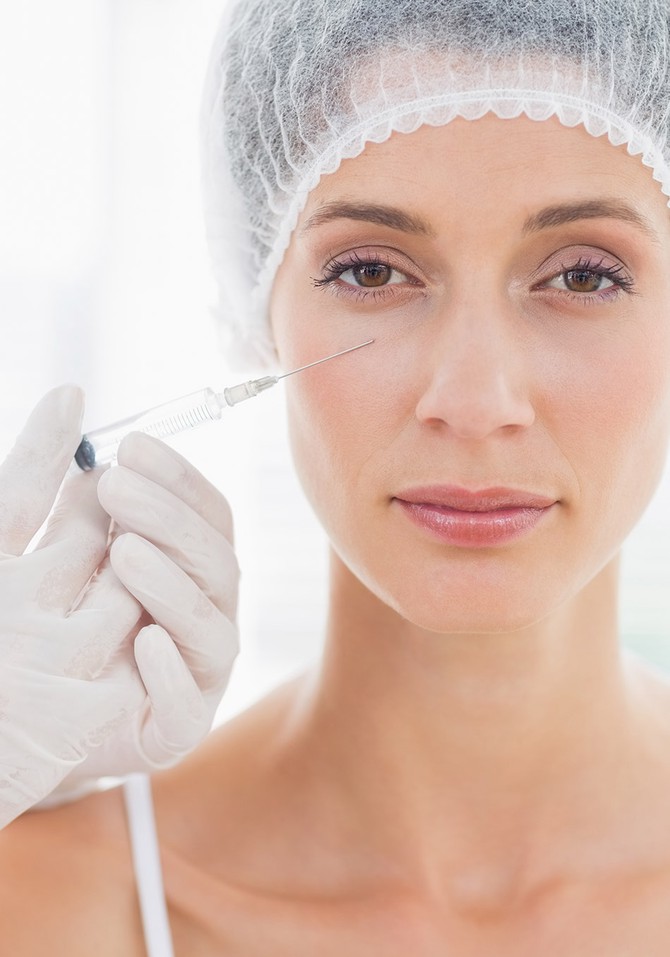
Photo: Wavebreak Media/ Thinkstock
The Dermatologist's Solution
What's happening: As we age, the muscles and other support structures around the eyes weaken. This may result in sagging of the eyelid skin, as well as migration of the fat pads around the eye to the spot just below, causing those dreaded bags, says Jackson.
What to try: If you've changed your diet, your routine and your beauty products and nothing has worked, a dermatologist can inject fillers into the tear trough to smooth out the area, says Jackson.
What not to try: Sadly, Jackson says, there isn't any cream than has been proven to shrink the fat pads under the eyes.
What to try: If you've changed your diet, your routine and your beauty products and nothing has worked, a dermatologist can inject fillers into the tear trough to smooth out the area, says Jackson.
What not to try: Sadly, Jackson says, there isn't any cream than has been proven to shrink the fat pads under the eyes.
Published 10/07/2014

